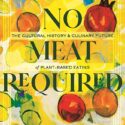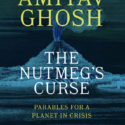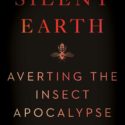A powerful movement is happening in farming today—farmers are reconnecting with their roots to fight climate change. For one woman, that’s meant learning her tribe’s history to help bring back the buffalo. For another, it’s meant preserving forest purchased by her great-great-uncle, among the first wave of African Americans to buy land. Others are rejecting monoculture to grow corn, beans, and squash the way farmers in Mexico have done for centuries. Still others are rotating crops for the native cuisines of those who fled the “American wars” in Southeast Asia.
In Healing Grounds, Liz Carlisle tells the stories of Indigenous, Black, Latinx, and Asian American farmers who are reviving their ancestors’ methods of growing food—techniques long suppressed by the industrial food system. These farmers are restoring native prairies, nurturing beneficial fungi, and enriching soil health. While feeding their communities and revitalizing cultural ties to land, they are steadily stitching ecosystems back together and repairing the natural carbon cycle. This, Carlisle shows, is the true regenerative agriculture – not merely a set of technical tricks for storing CO2 in the ground, but a holistic approach that values diversity in both plants and people.
Cultivating this kind of regenerative farming will require reckoning with our nation’s agricultural history—a history marked by discrimination and displacement. And it will ultimately require dismantling power structures that have blocked many farmers of color from owning land or building wealth.
The task is great, but so is its promise. By coming together to restore these farmlands, we can not only heal our planet, we can heal our communities and ourselves.
Healing Grounds: Climate, Justice, and the Deep Roots of Regenerative Farming
Praise for Healing Grounds
“In Healing Grounds, Liz Carlisle makes the compelling case that soil can save us from climate catastrophe, but only if the global Indigenous communities who originated soil stewardship practices lead the way. In a tone that is both authoritative and humble, Carlisle convinces the reader that the same extractive forces that wrest carbon from the soil, also yank earth stewards from the land. Further, there can be no ecosystemic redemption without addressing colonialism. Healing Grounds is a refreshingly truthful account of real roots of climate chaos and the authentic path to healing.”
—Leah Penniman, author of “Farming While Black” and Co-Founder, Soul Fire Farm“In this wonderful book, Liz Carlisle shares the dissidence against the dominion of colonial capitalism in these United States. She analyzes what America might become, and shares a map for the noble work ahead to get there. The best of it is that the ground beneath your feet will never feel the same again.”
—Raj Patel, author of “Stuffed and Starved” and co-director of “The Ants & The Grasshopper”
About the Author
 Liz Carlisle is an Assistant Professor in the Environmental Studies Program at UC Santa Barbara, where she teaches courses on food and farming. Born and raised in Montana, she got hooked on agriculture while working as an aide to organic farmer and U.S. Senator Jon Tester, which led to a decade of research and writing collaborations with farmers in her home state. She has written three books about regenerative farming and agroecology: Lentil Underground (2015), Grain by Grain (2019, with co-author Bob Quinn), and most recently, Healing Grounds: Climate, Justice, and the Deep Roots of Regenerative Farming (2022). She is also a frequent contributor to both academic journals and popular media outlets, focusing on food and farm policy, incentivizing soil health practices, and supporting new entry farmers. She holds a Ph.D. in Geography, from UC Berkeley, and a B.A. in Folklore and Mythology, from Harvard University. Prior to her career as a writer and academic, she spent several years touring rural America as a country singer.
Liz Carlisle is an Assistant Professor in the Environmental Studies Program at UC Santa Barbara, where she teaches courses on food and farming. Born and raised in Montana, she got hooked on agriculture while working as an aide to organic farmer and U.S. Senator Jon Tester, which led to a decade of research and writing collaborations with farmers in her home state. She has written three books about regenerative farming and agroecology: Lentil Underground (2015), Grain by Grain (2019, with co-author Bob Quinn), and most recently, Healing Grounds: Climate, Justice, and the Deep Roots of Regenerative Farming (2022). She is also a frequent contributor to both academic journals and popular media outlets, focusing on food and farm policy, incentivizing soil health practices, and supporting new entry farmers. She holds a Ph.D. in Geography, from UC Berkeley, and a B.A. in Folklore and Mythology, from Harvard University. Prior to her career as a writer and academic, she spent several years touring rural America as a country singer.
Show Notes
02:25 | The four per mille study and why regenerative agriculture has sparked hope in recent years.
04:35 | What’s possible when you take “regeneration” and regenerative agriculture to heart
06:25 | Aidee Guzman’s research on soil health and habits of bees on diverse farms vs monoculture farms in California’s Central Valley
07:56 | The 450 million year old fungi that helped bring plants to the land.
10:05 | How to support a diversity of farmers and farming techniques
13:53 | History of agroecology in Mexico and how it intersected with the Green Revolution
19:33 | There’s no such thing as a weed
21:35 | For Aidee, there are two distinct worlds of agriculture
25:12 | Reciprocal farm labor practices abroad and in the US
29:40 | How the agricultural industry in the US was designed and why it is extractive today
32:45 | The one thing Liz Carlisle and Aidee Guzman want you to know about climate, justice, and the deep roots of regenerative farming.
Additional Resources
To learn more about Aidee Guzman, visit https://www.aideeguzman.com/
To learn more about Liz Carlisle, visit https://www.lizcarlisle.com/
Join the Real Food Reads book club: https://realfoodmedia.org/programs/real-food-reads/
Become a Patreon supporter for early access to our episodes and premium content with the authors here https://www.patreon.com/realfoodmedia
EPISODE CREDITS
Host: Tiffani Patton
Co-Producers: Tanya Kerssen and Tiffani Patton
Editor: Jaime Roque




